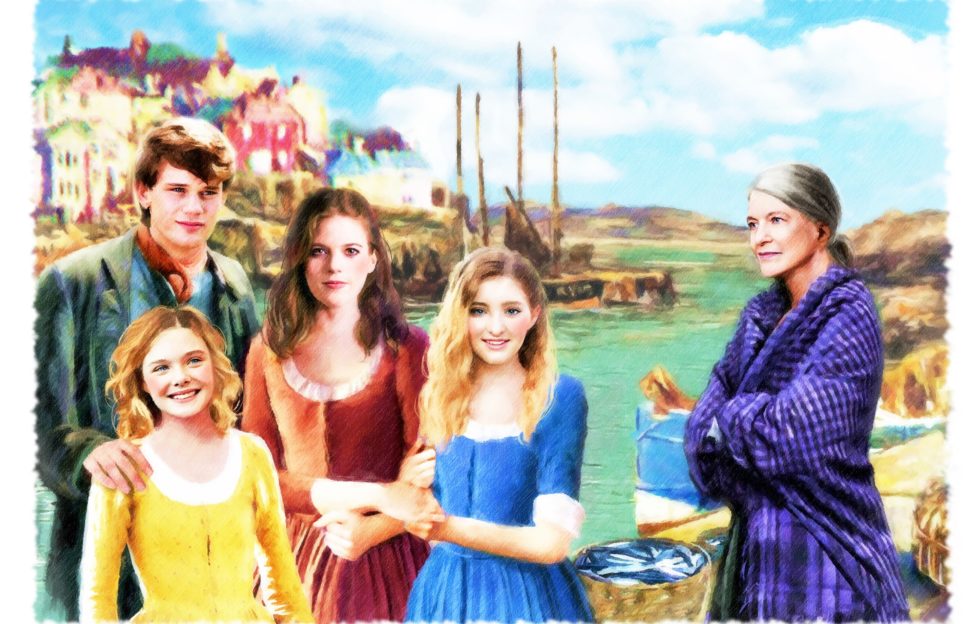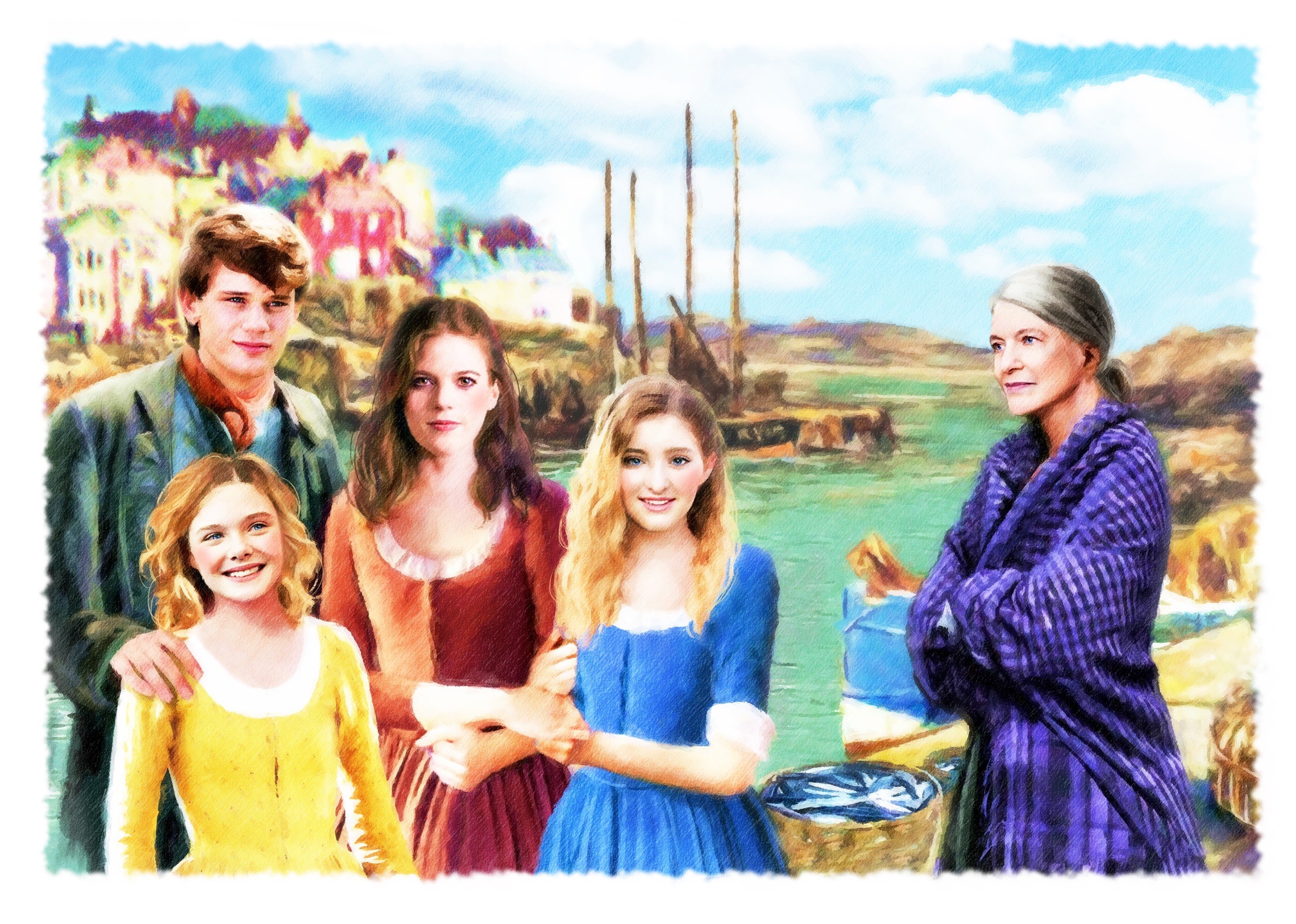Northern Lights – Episode 19

Northern Lights by Betty McInnes
« Previous Post- 1. Northern Lights – Episode 01
- 1. Northern Lights – Episode 19
At the beginning of March, Maggie was caught in a downpour. Soaked to the skin, she hurried home to change her clothes.
She was sitting by the fire combing dry her hair when there was a knock on the door. Lilias answered it.
The two men standing in the pouring rain had the officious look of bailiffs.
“Miss Cargill?”
Before Lilias could reply in the negative, Maggie called out.
“I’m Miss Cargill, what do ye want?”
“We’re empowered by the town council tae inspect this property, Miss Cargill. May we step in?” He spoke politely, but firmly.
Maggie frowned, puzzled.
“I suppose, if ye must.”
Lilias stood aside. She took the wet capes and hung them on the coathooks.
Maggie rose to meet them. The two men relaxed. With long hair hanging loose down her back, the lass looked pathetically young and vulnerable.
“You’ll be aware work’s to begin at Ladyloan for the Bell lighthouse?” one asked.
“Aye, I heard. What’s that to do wi’ me?”
“There’s urgent need of lodgings nearby for the extra number o’ workmen required, lassie,” he explained as if to a child. “The lighthouse project is so important that the town council must take possession o’ some houses for men’s lodgings. Your late father was householder o’ this property and it would seem tae fit the bill.”
“It does not!” Maggie declared angrily. “My father bought the house so we’d aye have a roof over our heads. It’s written into his will, legal and binding, and I say ye can’t have it.”
He shook his head pityingly.
“Lassie, your father bought the right to be acknowledged as householder, right enough, but he was still feudal tenant o’ the superior that owns the land and subject to government o’ magistrates of the burgh.
“You’re a lassie and your brother is under age, so you cannot refuse. You’ll be compensated,” he added.
“But we’ve nowhere to go. This is monstrous!”
“Your brother’s apprenticed to the smith so his master is duty bound tae take him in. You and your sisters can easy find work as live-in domestics.”
He shrugged.
“If your father had survived the shipwreck he would want tae contribute to the lighthouse. Be proud his hoose is considered worthy, lassie, and be glad tae make the sacrifice.”
“Proud and glad to be made homeless, despite our father’s will? How dare ye!” Maggie yelled.
“When I was a wee lassie,” Lilias intervened, “my great-grannie said that this area o’ Arbroath was once farmland.”
The bailiff frowned.
“Aye, so it was, Grannie. But that’s enough talk. We must get on wi’ inspecting the rooms.”
“No. You’ll listen tae what I have to say,” Lilias said brusquely.
The bailiffs were startled.
“I’ve been talking to folk that ken the history o’ this place,” she said. “They say this house was originally the farmhouse and in days gone by a deed was drawn up between landowner and householder.
“It decreed only the householder and family must occupy this house. It was done tae stop folk frae outside the burgh being taken in, becoming a burden on the estate.”
Her eye glinted.
“I’m told the decree stands to this day, entered in the landowner’s estate records. So the council’s no’ entitled to tak’ this hoose for lodgings. It’s leased for the owners’ occupancy and willed tae the late captain’s kin.”
There was dead silence as the words sank in.
“There’s aye the bothy out in the back, of course,” Lilias went on. “It was built tae lodge upward o’ fifteen farmworkers. The deed doesna apply to the bothy, since most farmworkers move on at Michaelmas.”
The bailiff clutched at this ray of hope.
“Nobody mentioned a bothy. Is it habitable?”
“It could be.” Lilias nodded. “The roof’s sound and the interior’s dry. The Captain stored sails, spars and nets in the space.”
The man tugged thoughtfully at his beard.
Lilias had another tempting card up her sleeve, having already given the matter much thought over many sleepless nights.
“Our family could easy turn the bothy into adequate lodgings for workmen and charge a small fee for their keep. That would save your councillors a deal o’ siller and scutter, would it no’?” she said innocently.














